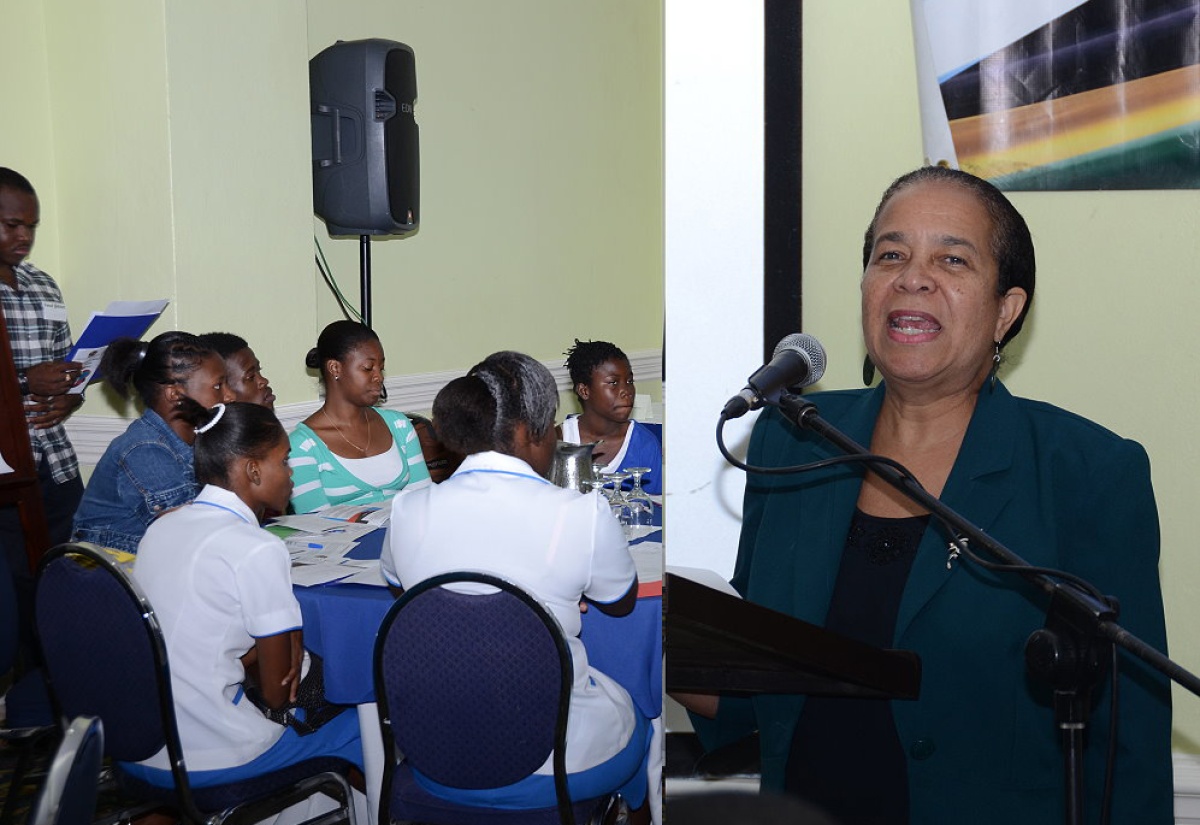Justice Ministry Continues Consultation on NCPD
By: , October 22, 2013The Key Point:
The Facts
- The consultation on October 18 targeted students from State care homes, the general public, those in conflict with the law, and school groups.
- UNICEF provides technical and financial support for the National Plan of Action for Child Justice, of which the National Child Diversion Policy is a part.
The Full Story
The Restorative and Child Justice Reform Unit in the Ministry of Justice continued its series of consultations on October 16 and 18 at the Jamaica Conference Centre and the Knutsford Court Hotel, respectively.
Those meetings brought to four the number of consultations held islandwide to educate and sensitize the Jamaican public on the National Child Diversion Policy (NCDP).
The consultations also sought to establish a formal framework for dealing with children in conflict with the law throughout the criminal justice process, with a view to ensuring that detention or institutionalization is a last resort.
“Stemming from these four consultations we recognized that there are two specific groups that we needed to target, the police who will be enforcing the Policy and the children who will benefit,” Director of Restorative and Child Justice Reform, Ruth Carey, told JIS News.
The consultation on October 18 targeted students from State care homes, the general public, those in conflict with the law, and school groups, including student leaders. More than 40 students attended the meeting.
“We had a very diverse group and it represents all the children we needed feedback from that will impact different aspects of the Policy,” Ms. Carey noted.
She said the Restorative and Child Justice Reform Unit had to engage the children, “because we cannot be drafting a policy that will affect them and not include them. From this consultation we identified that they are very interested in certain sections of the Policy, for example, how many cautions a child will get under the diversion policy and some types of diversion programmes.”
The students who attended the consultation were commended by Child Protection Specialist for the United Nations Children’s Fund (UNICEF) to Jamaica, Janet Cupidon Quallo.
“By attending this session you are exercising your right to participation and I must commend the Ministry of Justice for providing this opportunity for children to have a say in a matter of national concern and one which affects children significantly,” she said.
UNICEF provides technical and financial support for the National Plan of Action for Child Justice, of which the National Child Diversion Policy is a part.
There were several breakout sessions in which the students and their facilitators discussed the Policy. In the discussions the students were asked to explain what should happen as well as what happens to children in State care and lockups as a result of being in conflict with the law. Their responses were recorded and will be considered in the drafting of the Policy.
The consultation with police officers on October 16 was attended by over 80 persons from the rank of Constable to Inspector.
Ms. Carey said they raised concerns about offences against the person, such as wounding, as well as the amount of police cautions that should be allowed to each student who is placed in the Diversion programme.
She told JIS News that another concern raised was children in lock ups, as one of the objectives of the Policy is to reduce the number of children locked up and institutionalized.
A draft of the NCDP is to be submitted to Cabinet by the end of November.


